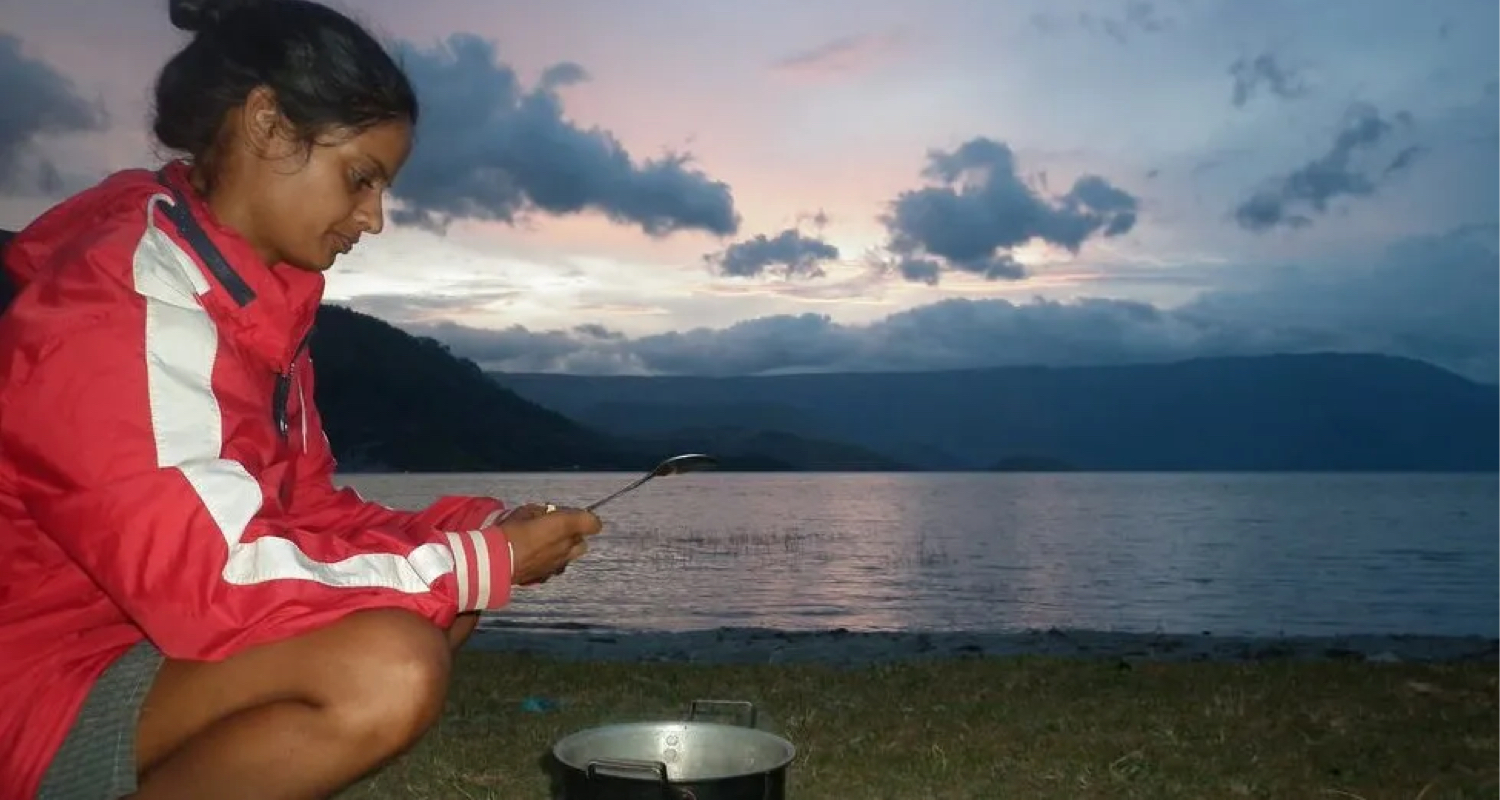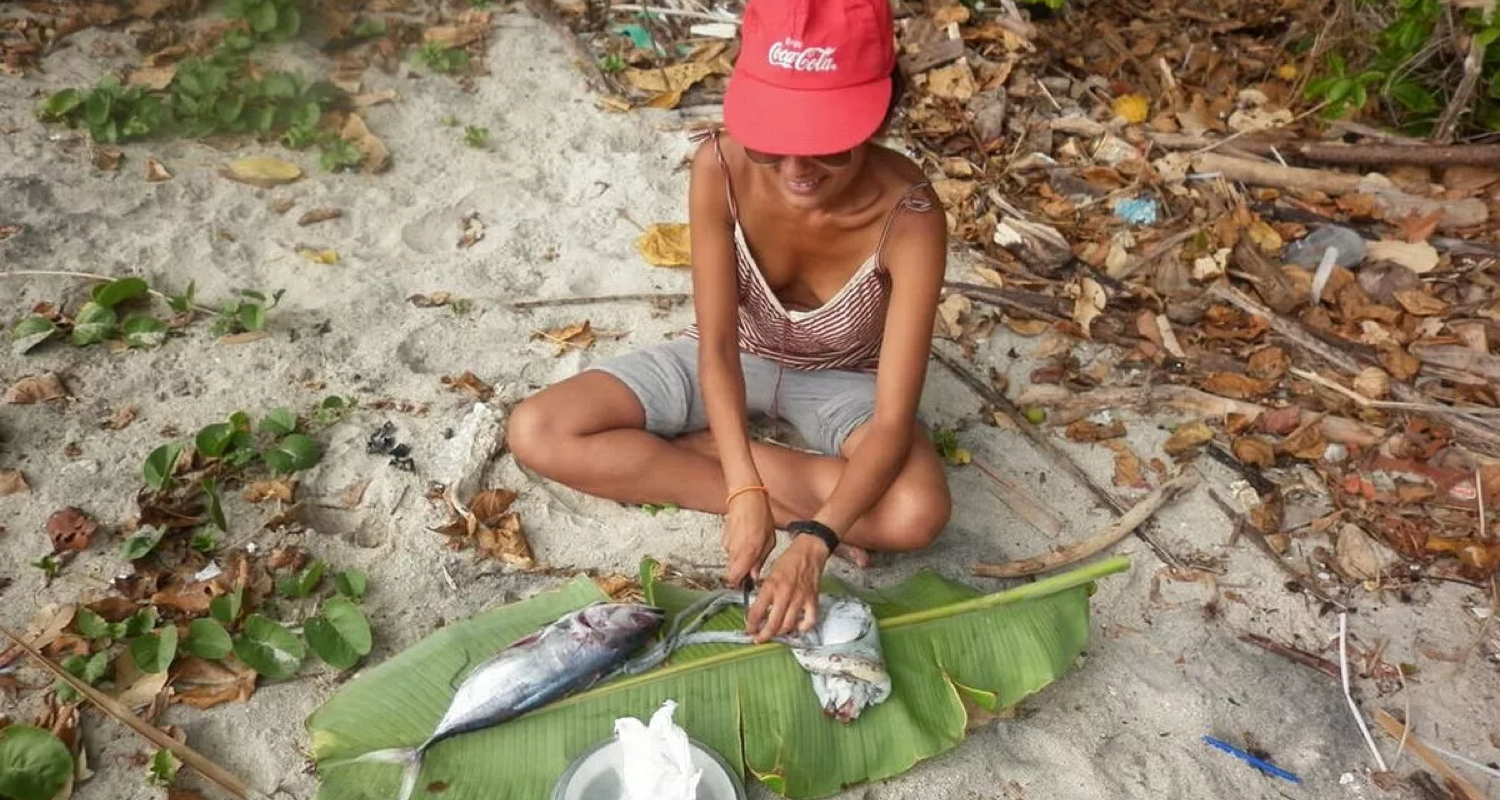Last Autumn we had the pleasure of welcoming Rhinal Patel to Spindogs HQ. Rhinal is a speaker, writer and counsellor who works alongside Greenpeace and Amnesty International, having also spoken for the United Nations and other global organisations. Rhinal gave some very thoughtful and inspiring answers to the questions posed by the team, and as January is often a time of fresh perspective and goal setting now seemed like a good time to share some of Rhinal’s perspectives and suggestions on the pursuit of happiness and do our best for the environment we all share.

At the age of 30, Rhinal was on an impressive career path, as the Communications Director for a film company in London, working alongside A-list celebrities and achieving what Rhinal felt at the time were the traditional signs of success. As the media wrote at the time, it seemed like Rhinal was living the perfect life. Yet she felt unfulfilled and so made the brave decision to leave her role, country, and life as she knew it, to travel and meet people from all over the world and learn all she could from new people and experiences.
Whilst Rhinal is not advocating that everyone should leave their career and do what she did, she suggested that everyone should search inside themselves and take the time to understand what will personally bring them happiness. Travel helped Rhinal uncover a lot about herself, as she was able to step out of her comfort zone and out of her conditioned and privileged lifestyle. In this raw format, she was able to have the space to make different choices, and she realised the less she had, the happier she was – this was intersected with taking care of the environment and humanity.


After travelling, Rhinal was more considerate of what she bought and conscious of minimising the cost to humanity and the environment. For example, the clothes she wears are second-hand. Rhinal says, “Often, what is a waste for one person can be a treasure for another.” A theme that came through all of the answers that Rhinal shared was balance. It is not about feeling guilty for what we have not done or making perfect choices every time, it is more about making conscious choices and offsetting what we can with other positive actions.




Did you know?
One-third of all food produced is wasted. Every year in the UK, our wasted food represents 14 million tonnes of carbon dioxide emissions. The gas emissions from our wasted food are equal to the emissions created by 7 million cars each year.
Roughly a third of our kitchen and garden waste can be composted. Local authorities are getting better at collecting compostable waste, which can be processed to create renewable energy. However, when our kitchen and garden waste is not disposed of properly and ends up in landfills, it turns into methane, which is a large contributor to climate change.
The energy we use in our homes accounts for approximately 20% of the carbon emissions in the UK, so by finding ways to waste less energy you can reduce your carbon footprint. Whilst, insulation, double glazing and low-energy lighting can reduce our energy bills by up to a quarter.
If you are lucky enough to own a dishwasher, you can use up to 6000 litres of water a year, rather than washing by hand. The less water you use, the more water there will be in the lakes and rivers, which will help support nature and wildlife.
Carbon footprint calculator
Rhinal explained there is a great tool readily available to use on WWF. The footprint calculator on WWF is a questionnaire, which covers 4 key areas – food travel, home and ‘stuff’. The questionnaire estimates how your lifestyle leads to carbon emissions and will give you your footprint result in tonnes.
The UK average footprint for 2023 is 9.3 tonnes. Although, this is assuming that it follows the same trajectory as the UK Climate Change Committee’s Balanced Net Zero Pathway. Whilst, according to the WWF, the world’s average is 6.3 tonnes.
Within the results of the questionnaire, you will also find ways to help reduce your score. You may even want to download the ‘My Footprint App’ where you calculate your footprint, and can choose challenges that enable you to make small changes within your life. Within this app, you can track the challenges you have set for yourself and see how you are getting along.

Check out your carbon footprint
Find out more about your carbon footprint score and let us know how you get on.
Actions we can implement
Often when faced with big issues such as climate change, we may be unsure where to start. Rhinal was quick to remind us that it is not the responsibility of one person to do everything 100% right – to do everything perfectly – but rather, for us all to create small changes and habits that will help considerably. It will be as a collective that we will make the necessary changes.
As mentioned above WWF’s carbon footprint tool will provide you with some tips on how to reduce your carbon footprint once you have completed the questionnaire. Some of these suggestions include simple changes such as turning off lights when you don’t need them, not leaving devices on standby and becoming a conscious consumer and buying from ethical companies.
Ideas we can all embrace:
Embrace the mantra of reducing waste, reusing items, and recycling materials to minimize the strain on landfills and natural resources.
Switch to energy-efficient appliances, turn off lights when not in use, and consider renewable energy sources like solar or wind power.
Make informed choices when shopping by opting for products with minimal packaging and supporting brands committed to eco-friendly practices.
Trees are nature’s carbon sinks, absorbing carbon dioxide and releasing oxygen. Participate in reforestation efforts in your community.
Plastics are a major contributor to pollution. Choose reusable alternatives and participate in beach or neighbourhood clean-up initiatives.
Support policies and regulations that prioritize environmental protection and sustainable practices at local, national, and global levels.
Reduce your meat consumption and choose sustainably sourced foods. This can help lower the environmental impact of agriculture and livestock production.
Spread awareness about environmental issues through conversations, social media, or local events to inspire others to take action as well.
Donate to or volunteer with organisations working to protect natural habitats, wildlife, and ecosystems.
Walk, bike, carpool, or use public transportation to reduce your carbon footprint.
Your digital carbon footprint
Our online habits are also having a surprisingly harmful effect on the environment. Every minute that we spend scrolling a newsfeed, browsing the internet, streaming a video, joining a Teams call all contributes to your digital carbon footprint. With the shift to remote work, our reliance on the internet has only increased, further exacerbating the problem. Fortunately, there are practical measures you can take to minimise your digital carbon output.
In a recent blog post, our Technical Director Dave explains some quick wins you can do right away to help reduce the carbon footprint of your website which are low cost and easy to implement.
